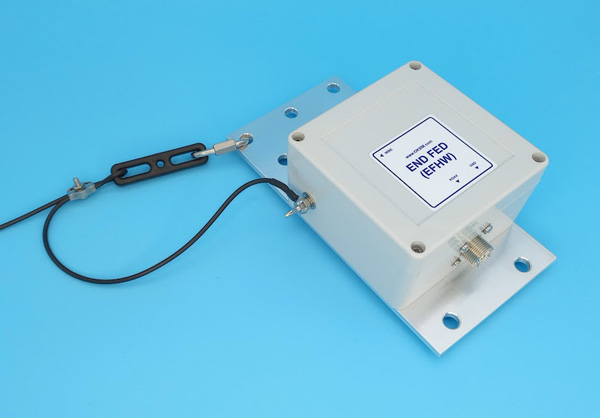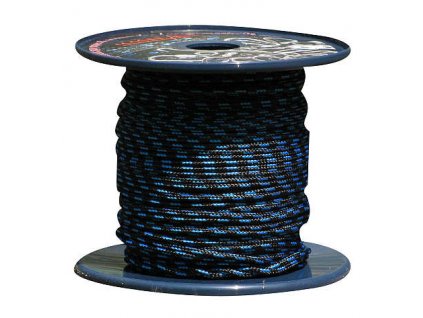EndFed MINI mk2
Code: 432/10 432/20 432/42 Choose variantRelated products
Product detailed description
END FED (EFHW) antenna, MINI version.
New design of transformer component 2025
- more massive boxes, thicker walls
- brass bushings for lid screws
- Uniform box design for all models
- new power limits
- wider choice of mechanical designs
- choice of pressure valve design
- choice of Amphenol N connector
- MINI version also available in clamp mount version
- overall precision design
Lightweight version suitable for fixed mounting, laminated telescopes, portable.
Suitable for use with QRP.
Mounting for hanging behind the transformer member.
The length of the emitter affects the radiation pattern on the individual bands.
In general, an antenna with a radiator length of 42 m can be used on all bands from 3.5 MHz
But due to the length of the radiator, the upper bands from 21 MHz upwards already have a radiation pattern fragmented into many lobes.
Therefore for the upper bands it is better to use an END FED antenna with shorter radiator length.
Recommendations with regard to the ideal radiation pattern:
42 m - 3.5-7-14 MHz (14 MHz has more lobes)
20.5 m - 7-28 MHz (28 MHz already has more lobes)
10 m - 14-28 MHz
Alternatively, for ideal operation on all bands, it is possible to have a single transformation link and switch between a 42 m beam length for the lower bands and 10 m for the upper bands.
Technical data:
- 3.5-28 MHz bands according to the selected emitter length variant
- emitter length according to the selected variant
- antenna cable CU-DX10
- transformer element END FED MINI
- compensation capacity 100 pF / 10 kV
- input impedance 50 Ohms
- power load up to 50 W PEP max (SSB 50 W / CW 20 W / digi 10 W)
- mechanical design for clamp mounting
- PL (UHF) input connector
- antenna radiators are connected to M4 screws and secured with wing nut
- fasteners are stainless steel
- the box is IP-65 rated
- box size 75x75x45 mm
- weight according to the selected length of the antenna cable
The box can be equipped with a pressure valve at extra cost.
The function of the pressure valve - if the instrument box is exposed to temperature changes - e.g. the difference between day and night temperatures or if heat is generated in the box during operation and the box cools down after operation - pressure changes and water vapour condensation occur in the sealed box.
In some cases, a vacuum may even be created, which can cause dust and moisture to enter.
Installing a valve with a pressure balancing function is a very simple way to provide ventilation and at the same time prevent vapour condensation and dust from entering the enclosure.
If you are interested in installing a pressure equalizing valve, add the valve offered above in the related products to your cart. The extra charge is the price of the valve.
Example of attaching the antenna cable to the transformer.

Be the first who will post an article to this item!





